Bar Tackles Sex Harassment, Fake News and Gun Control
“If the events of the last year have taught people anything, it's that you've got to deal with this stuff in real time,” said SunTrust GC Ellen Fitzsimmons.
February 23, 2018 at 03:45 PM
4 minute read
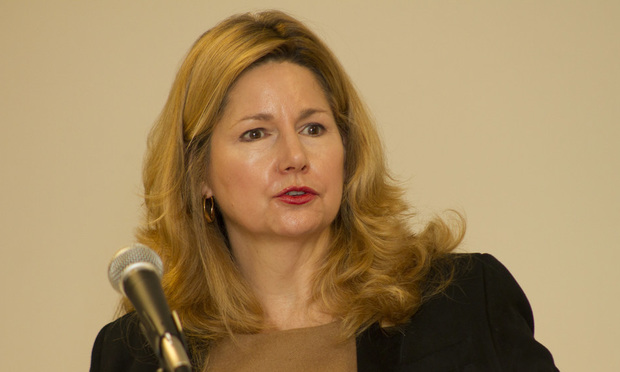
A fictional lawsuit over sexual harassment gained traction from current events to engage lawyers, judges and journalists in a conversation at the State Bar of Georgia Friday.
“If the events of the last year have taught people anything, it's that you've got to deal with this stuff in real-time,” said SunTrust general counsel Ellen Fitzsimmons, explaining that she would take seriously and investigate such a complaint immediately, protecting the rights of the accuser as well as due process for the accused.
She was speaking in a panel discussion titled, “Sex, Lies and Hotel Receipts.” The group worked through a made-up story of an imaginary company and a complaint against its owner. It was a Fred Friendly-style exploration of the issues raised by sexual harassment claims, including challenges for companies, plaintiffs, attorneys, judges and media. The format is a tradition at the annual bar media conference.
Retired CNN executive and Georgia First Amendment Foundation President Richard Griffiths led the conversation. He asked Fitzsimmons if she was worried when the fictional corporate founder denied the charge—and accused the GC of failing job performance.
“No,” she said. “There is a difference between being unemployed and unemployable.”
She said an in-house lawyer's client is always the company, not the individual executives.
“If I've sat on a Matt Lauer complaint for a decade, I'm unemployable,” she said.
When such a complaint is found to be credible, settlement makes sense for both sides, the panelists agreed.
Judge Amy Totenberg of the U.S. District Court for the Northern District of Georgia shed light on why that's so.
“It's extremely rare to have a sexual harassment case go to trial because of the sensitivity,” she said. In addition, the judge said, case law hasn't caught up with the nuances of the charges in the #metoo movement. Cases that would be regarded by the public as examples of unacceptable behavior have in the past been found by the courts to be “not sufficiently severe,” she said.
Other panelists Friday discussed challenges to the First Amendment and to the media, particularly from the current president.
Atlanta Journal-Constitution Editor Kevin Riley said the route to protecting the First Amendment lies in its relevance to everyone, not just the media.
The fact that “any citizen can seek that public record” that a journalist seeks reveals the value of the First Amendment and its impact on people's lives, Riley said.
A more lasting negative effect of the Donald Trump presidency could be the negative labels he's given opponents, adversaries and media outlets—often on Twitter, Riley said. For example, the “failing New York Times.”
Kevin Sack, an Atlanta-based, Pulitzer Prize-winning reporter from that paper—and formerly with the AJC—said, “I bring you greetings from the failing New York Times.”
Sack went on to cite a list of statistics showing that The New York Times has experienced a surge in subscriptions and profits since Trump's election. At least in the moment, the Times has benefited from a side effect of “attacks by purveyors of fake news,” Sack said.
Mayor Keisha Lance Bottoms delivered the keynote speech for the conference over lunch. She said her law degree from Georgia State University has informed her thinking as an Atlanta City Council member and now as mayor.
And the mayor tied the interests of law and media together with a suggested test for decision-making. Imagine being followed by a news crew, she suggested.
“If it won't look good on television, if it won't look good in the newspaper,” the mayor said, “then you probably shouldn't do it.”
The conference also included a live broadcast of the Georgia Public Broadcasting program, “Political Rewind,” with host Bill Nigut and AJC political columnist Jim Galloway.
Taking off from the day's news about gun control legislation being introduced in Florida in response to the shooting tragedy in a Parkland high school, Nigut asked the audience to vote. Should teachers be armed, as the president suggested? Two or three people clapped. Should every school have armed security officers? A few more people responded. Should we enact state and federal laws to ban assault weapons or high volume ammunition capabilities? The room erupted in applause.
This content has been archived. It is available through our partners, LexisNexis® and Bloomberg Law.
To view this content, please continue to their sites.
Not a Lexis Subscriber?
Subscribe Now
Not a Bloomberg Law Subscriber?
Subscribe Now
NOT FOR REPRINT
© 2025 ALM Global, LLC, All Rights Reserved. Request academic re-use from www.copyright.com. All other uses, submit a request to [email protected]. For more information visit Asset & Logo Licensing.
You Might Like
View All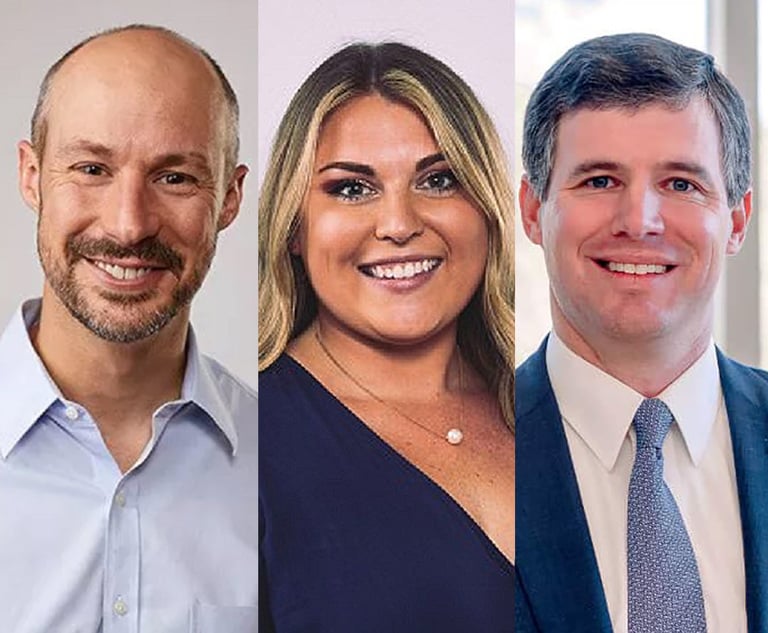
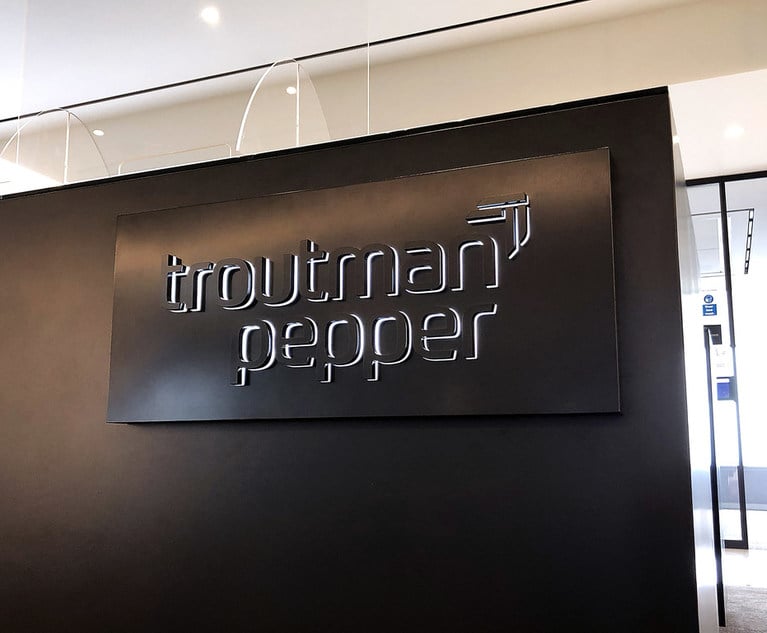
Troutman Pepper Says Ex-Associate Who Alleged Racial Discrimination Lost Job Because of Failure to Improve
6 minute read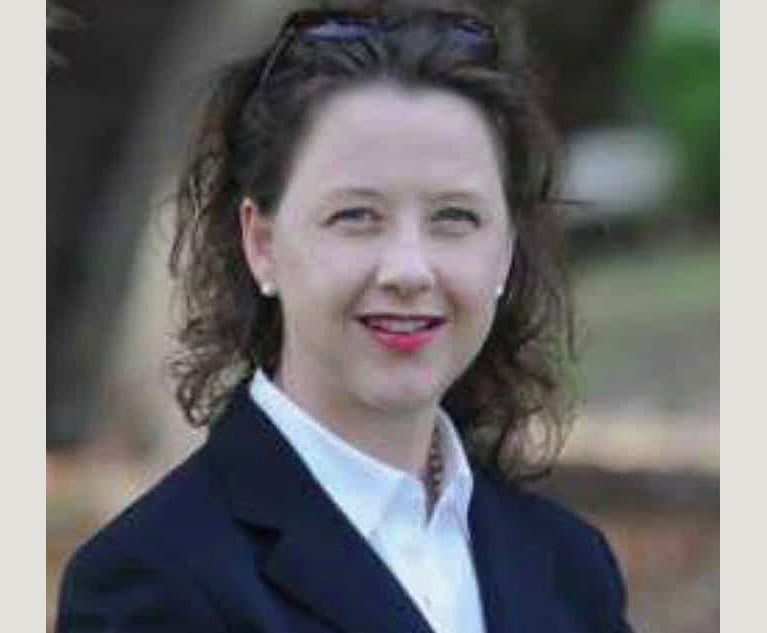
Judge Orders Acquittal of Ex-Prosecutor on 1 of 2 Counts in Misconduct Trial Over Ahmaud Arbery Case
3 minute read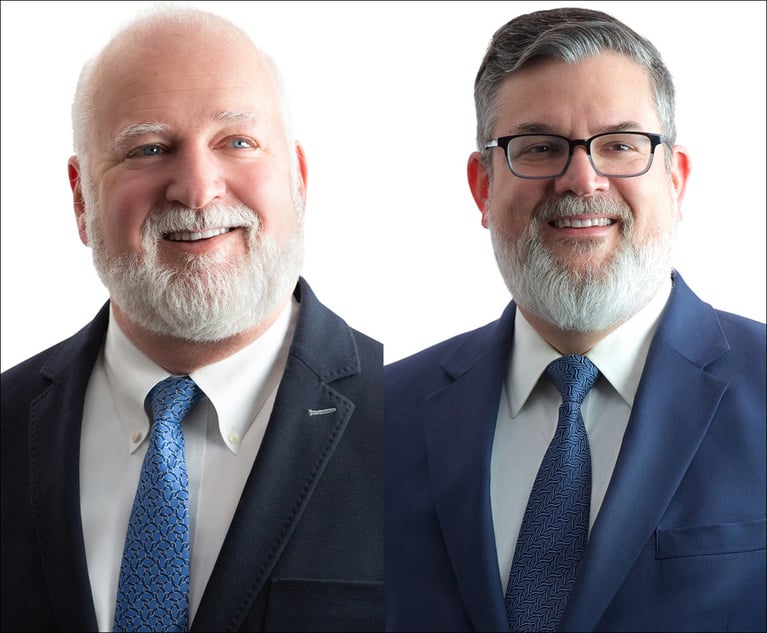
Trending Stories
- 1Legal Community Mourns the Loss of Trailblazing Judge Dorothy Chin Brandt
- 2Delaware Supreme Court, Reversing Chancery, Lowers Review Standard for TripAdvisor Move to Nevada
- 3Haynes and Boone Expands in New York With 7-Lawyer Seward & Kissel Fund Finance, Securitization Team
- 4Upstart Insurer That's Wowing Industry Hires AIG Legal Exec to Help Guide Global Expansion
- 5Connecticut Lawyers in Spotlight for Repping FBI Agents
Who Got The Work
J. Brugh Lower of Gibbons has entered an appearance for industrial equipment supplier Devco Corporation in a pending trademark infringement lawsuit. The suit, accusing the defendant of selling knock-off Graco products, was filed Dec. 18 in New Jersey District Court by Rivkin Radler on behalf of Graco Inc. and Graco Minnesota. The case, assigned to U.S. District Judge Zahid N. Quraishi, is 3:24-cv-11294, Graco Inc. et al v. Devco Corporation.
Who Got The Work
Rebecca Maller-Stein and Kent A. Yalowitz of Arnold & Porter Kaye Scholer have entered their appearances for Hanaco Venture Capital and its executives, Lior Prosor and David Frankel, in a pending securities lawsuit. The action, filed on Dec. 24 in New York Southern District Court by Zell, Aron & Co. on behalf of Goldeneye Advisors, accuses the defendants of negligently and fraudulently managing the plaintiff's $1 million investment. The case, assigned to U.S. District Judge Vernon S. Broderick, is 1:24-cv-09918, Goldeneye Advisors, LLC v. Hanaco Venture Capital, Ltd. et al.
Who Got The Work
Attorneys from A&O Shearman has stepped in as defense counsel for Toronto-Dominion Bank and other defendants in a pending securities class action. The suit, filed Dec. 11 in New York Southern District Court by Bleichmar Fonti & Auld, accuses the defendants of concealing the bank's 'pervasive' deficiencies in regards to its compliance with the Bank Secrecy Act and the quality of its anti-money laundering controls. The case, assigned to U.S. District Judge Arun Subramanian, is 1:24-cv-09445, Gonzalez v. The Toronto-Dominion Bank et al.
Who Got The Work
Crown Castle International, a Pennsylvania company providing shared communications infrastructure, has turned to Luke D. Wolf of Gordon Rees Scully Mansukhani to fend off a pending breach-of-contract lawsuit. The court action, filed Nov. 25 in Michigan Eastern District Court by Hooper Hathaway PC on behalf of The Town Residences LLC, accuses Crown Castle of failing to transfer approximately $30,000 in utility payments from T-Mobile in breach of a roof-top lease and assignment agreement. The case, assigned to U.S. District Judge Susan K. Declercq, is 2:24-cv-13131, The Town Residences LLC v. T-Mobile US, Inc. et al.
Who Got The Work
Wilfred P. Coronato and Daniel M. Schwartz of McCarter & English have stepped in as defense counsel to Electrolux Home Products Inc. in a pending product liability lawsuit. The court action, filed Nov. 26 in New York Eastern District Court by Poulos Lopiccolo PC and Nagel Rice LLP on behalf of David Stern, alleges that the defendant's refrigerators’ drawers and shelving repeatedly break and fall apart within months after purchase. The case, assigned to U.S. District Judge Joan M. Azrack, is 2:24-cv-08204, Stern v. Electrolux Home Products, Inc.
Featured Firms
Law Offices of Gary Martin Hays & Associates, P.C.
(470) 294-1674
Law Offices of Mark E. Salomone
(857) 444-6468
Smith & Hassler
(713) 739-1250






